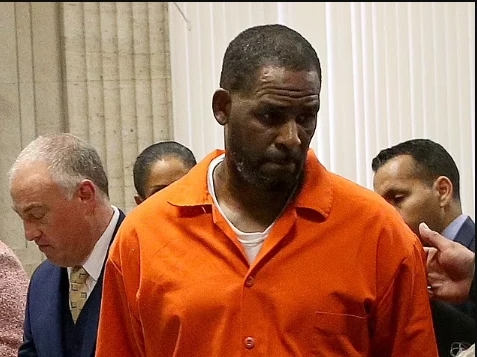R. Kelly has officially filed an appeal against the federal sex crimes he’s being accused of in New York.
The disgraced singer who was found guilty in 2021, on 9 federal counts that included RICO charges as well as charges pertaining to sex crimes and human trafficking, listed some reasons why he thinks his conviction should be reversed.
He argued that the government did not meet its burden of proof in court, despite a jury convicting him on all counts.
His lawyers also have specific gripes about the jury and some of the evidence prosecutors were allowed to submit during trial. They claimed that at least 4 of the jurors selected have since admitted prejudging his guilt before handing down their official verdict. It was also alleged that at least 2 of them had watched the “Surviving R. Kelly” docuseries, and should never have been seated on the jury.
On allegation of grooming and molesting underage girls, Kelly claimed that some were, in fact, at least 18 years old when he met and engaged in sexual relationships with them despite prosecutors’ insistence the alleged grooming started while they were still minors.
In the cases where Kelly is alleged to have met with actual minors, his team claimed he was misled by those girls at the time about their real age.
On some of the evidence admitted during the trial, the lawyers argued that details about his sex life and/or conduct and behavior with former partners or exes of his, accounts of which dove into STDs, sexual preferences and behavior in the bedroom, were not relevant to the crimes being alleged against him, and were simply a way for prosecutors to sway the jury.
They also pushed back on former employees/associates of his that were trotted out on the stand, claiming a lot of them falsely testified to things they had no real knowledge of and weren’t privy to in their capacity as staffers.
The singer is asking the appeals court to reverse his convictions or, at a minimum, order a new trial.
R.Kelly is currently serving a 30-year sentence in this matter, not to mention another 20 years for the Chicago case.

